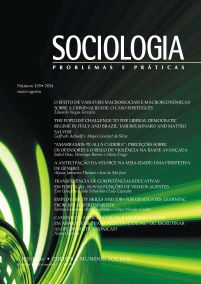The populist challenge to the liberal democratic regime in Italy and Brazil: Jair Bolsonaro and Matteo Salvini
DOI:
https://doi.org/10.7458/SPP202410528773Keywords:
populism, liberal democracy, political representation, Jair Bolsonaro, Matteo SalviniAbstract
Brazil and Italy, Jair Bolsonaro and Matteo Salvini, two populist leaders who, in Latin America and Europe, and alongside Donald Trump in the US, experienced a strong affirmation in 2018 – Italy and Brazil — and 2016 US, respectively. This paper aims to analyse whether and to what extent Bolsonaro and Salvini have effectively created the People through the equivalential chain. That is, according to Laclau, the specificity of populism lies in the ability of a leader to transform a shapeless social group into a unique People. The leader’s speech establishes the borders, and it is through identification with the leader’s speech that the People’s collective identity is formed. Using three dimensions – the leader, the ideology and the audience – we analyse the similarities and differences between the two experiences. The results show how the populist reason of the Brazilian and Italian leaders was highly functional in creating a broad consensus but also how precarious and fragile this consensus was.
Downloads
Published
Issue
Section
License
Authors who publish in this Journal must agree the following terms and conditions:
- Authors retain copyright and grant the Journal the right to first publication, while simultaneously agreeing to a Creative Commons Attribution License, which allows others to share their work on condition that they cite the original author(s) and recognise that the latter’s work was first published in this Journal.
- Authors are authorised to enter into additional contracts separately, for non-exclusive distribution of the version of the work that is published in this Journal (e.g. publication in an institutional repository or as a book chapter), subject to recognition of initial publication in this Journal.



